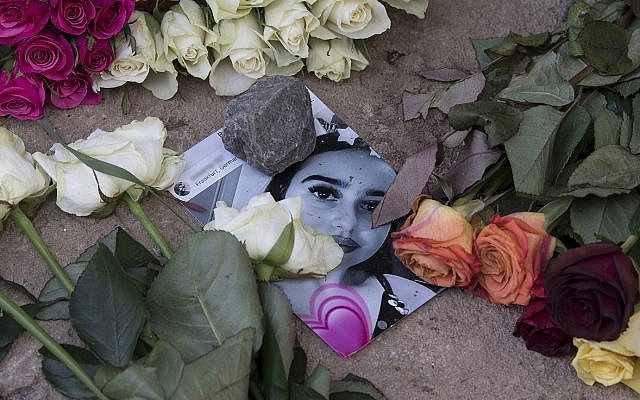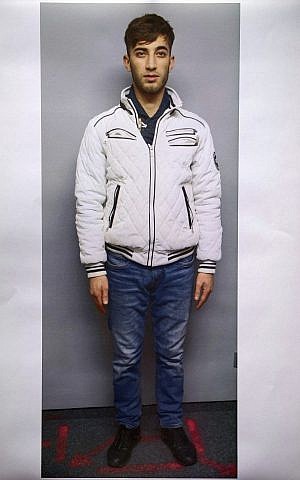
Outrage in Germany, and questions for police, after murder, rape of Jewish girl
Efforts underway to have suspect in killing of Susanna Feldman sent back from Iraq to face trial; case raises fresh doubts about Berlin’s policy toward migrants
9 June 2018, 2:19 am
BERLIN (AFP) — A failed Iraqi asylum seeker suspected of raping and murdering a teenage girl in Germany was arrested in Iraq overnight, German authorities said Friday, after his escape sparked outrage and raised questions over immigration and police failings.
Ali Bashar, 20, who is believed to have strangled the Jewish 14-year-old Susanna Maria Feldman after sexually assaulting her, was “arrested by Kurdish authorities in northern Iraq at the request of German federal police,” said German Interior Minister Horst Seehofer.
The arrest, as Bashar got off a plane, was due to “coordination between the Kurd and German security forces,” the official said.

The arrest came after an outcry in Germany as police hunting the fugitive admitted that Bashar had fled with his family.
They managed to fly out of Duesseldorf airport even though the names on their identity documents did not match those on their airline tickets, police said, adding that their identity was only checked against the photos on the papers.
Bashar also turned out to have chalked up a long police record over his less than three years in Germany and should have been expelled months ago.
“The government should beg for forgiveness from Susanna’s parents,” said the top-selling tabloid Bild.
“The only thing that is worse than the murder of a child is the murder of a child by a criminal who should not have been in our country.
“Crimes like these are explosive for our society because they are the bitter proof that this country does not have sufficient control over who is residing within our borders.”
Revealing that Feldman and her mother were members of the Jewish community, the Central Council of Jews in Germany urged a “swift and comprehensive” probe into the case and tough consequences for the perpetrator.

Protests planned
The case puts renewed pressure on Chancellor Angela Merkel’s government over the decision to open Germany’s borders at the height of Europe’s refugee crisis in 2015, resulting in the arrival of more than a million asylum seekers over two years.
Far-right party AfD, which had railed against asylum seekers, jumped in to push its point.
“Susanna is a new victim of the egotistical and hypocritical welcoming policy of Chancellor Angela Merkel,” charged AfD chief Alice Weidel, who called for the German leader’s resignation.

The party has called a protest Saturday under the banner “That’s enough” while counter-demonstrators plan to rally against racism on the same day.
Bashar arrived in Germany in 2015 along with his parents and five siblings.
He should have been deported after his request for asylum was rejected in December 2016, but he obtained a temporary residence permit pending his appeal.
During this time, he got into trouble with the police on several occasions, including for alleged robbery, possession of an illegal switchblade and fights.
He was also among the suspects of the sexual assault of an 11-year-old girl living in the same refugee shelter.
“The girl was raped by an Ali. There were four Alis living in the refugee home,” said Stefan Mueller, West Hesse police chief.
Revenge reflex
The latest crime is reminiscent of another case involving the rape and murder of a student by an asylum seeker claiming to be from Afghanistan.
Hussein Khavari was in March sentenced to life in jail for the deadly attack on medical student Maria Ladenburger, 19, in October 2016.
Tagesspiegel daily pointed to a third case, in which a teenage girl was stabbed to death by her boyfriend, an Afghan asylum seeker.
“What is particularly sad in these three cases is also that the victims were interested, curious and … tried to befriend (the newcomers).
“That’s how integration usually works — there are hundreds and thousands of examples in Germany. But now also three dead girls,” it added in an editorial called “Poison for society.”
Source: The Times of Israel